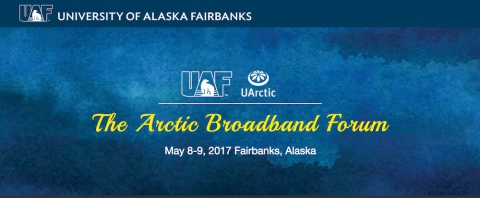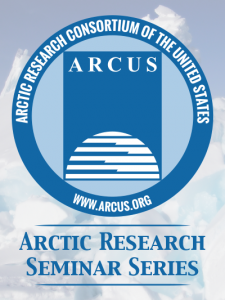The Interagency Arctic Research Policy Committee (IARPC) is initiating implementation of the Arctic Research Plan 2017-2021. SEARCH's Permafrost Action Team lead Christina Schädel (NAU), Andrew Balser (DOD), Benjamin Jones (USGS), will be leading the Permafrost Collaboration Team (PCT), and they are inviting all interested researchers and stakeholders to participate in their first meeting on 9 May at 10 AM Alaska Time (2 pm EST).
At this meeting, Torre Jorgenson from Alaska Ecoscience will talk about 'Progress toward understanding the response of permafrost to climate change in Alaska'.
Why participate in IARPC Collaborations?
While the IARPC Arctic Research Plan is a U.S. Federal government product and responsibility, IARPC recognizes that implementation cannot be accomplished without the research community. Therefore, collaboration teams and the IARPC collaboration website are open to participation by all stakeholders including U.S. Federal government program managers and scientists from State, international, academic, NGO, and industry organizations. The IARPC collaboration teams and website have created a new level of transparency in the research endeavor where information is flowing between the community and Federal agencies. Think of it as a regular science workshop, but on an ongoing and monthly basis.
Communicate regularly with Federal program managers and the research community. The conversations enabled through IARPC Collaborations have created an unprecedented level of information exchange. The research community benefits from the ongoing, monthly meetings where they can present their research to peers and program managers and learn about new research efforts within their field. Program officers, always eager to learn about research activities and priorities from the community, are able to do so on a regular basis. Program managers learn about one another’s programs, and identify synergies between programs and programmatic gaps.
See your research results in reports to Congress and Federal agencies. Reporting on implementation of the Arctic Research Plan goes to the IARPC principals, chaired by the Director of the National Science Foundation and made up of representatives of 14 Federal agencies, and to Congress. Anyone may submit their contributions to our Arctic Research Plan and see their research in these reports.
How do I participate?
If you don’t already have one, request an account on IARPC Collaborations, where information is shared among the 1000+ members of our research community. Once you have an account, join our collaboration team and you will automatically be notified of upcoming collaboration team meetings via email. You may also RSVP and view the connection information for our next meeting here.
We hope you will consider participating in PCT meetings, posting information on the website and getting involved in a meaningful way that benefits you and the work you are doing. If you should have any questions, feel free to contact me.
Christina Schädel - Network Coordinator and Research Scientist, Northern Arizona University, USA. christina.schaedel [at] nau.edu
© Permafrost Carbon Network
Coordinated Activity by the Permafrost Action Team of SEARCH
Study of Environmental Arctic Change


